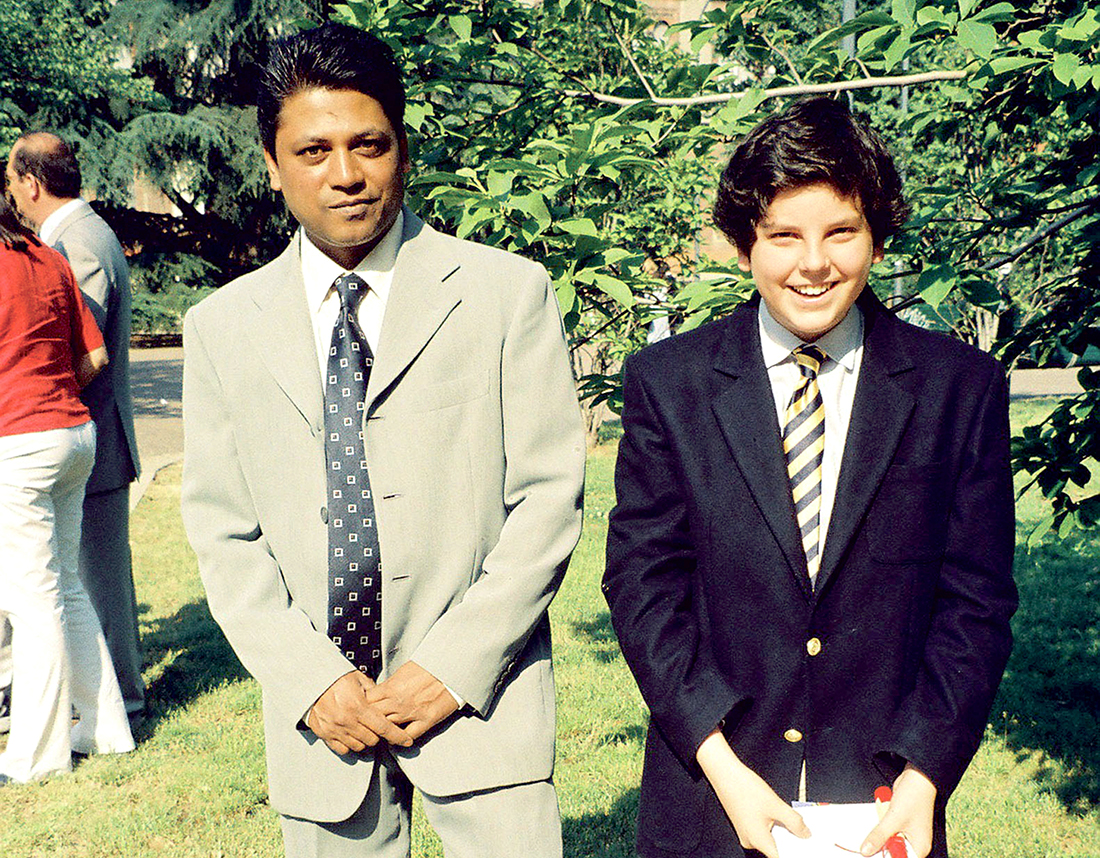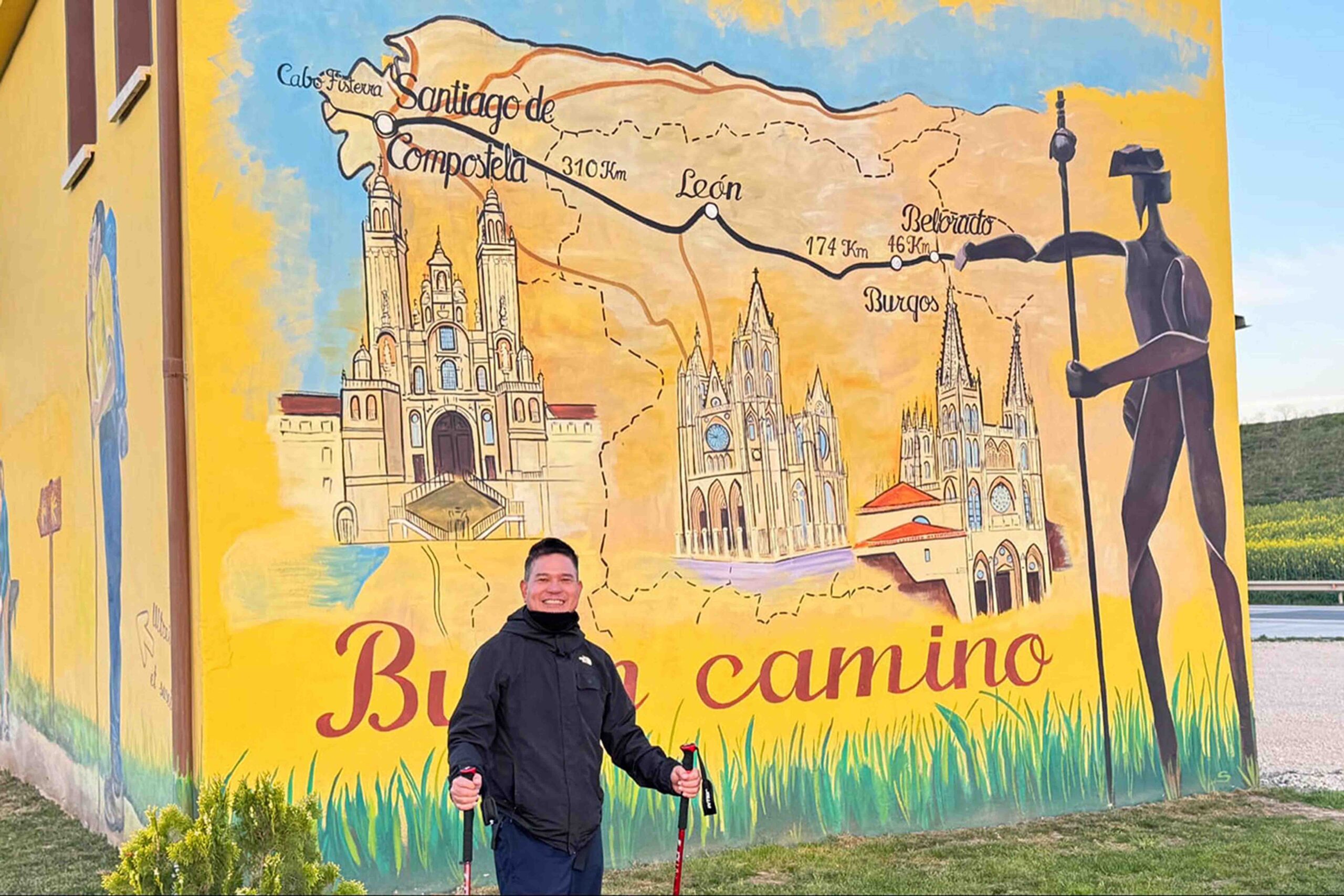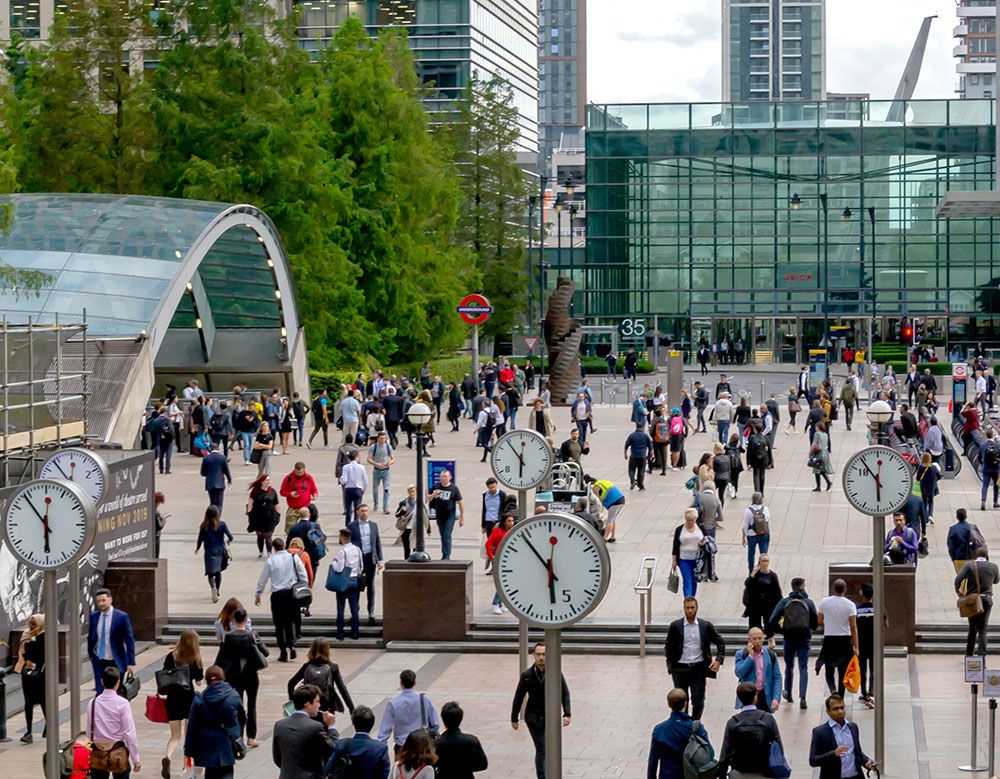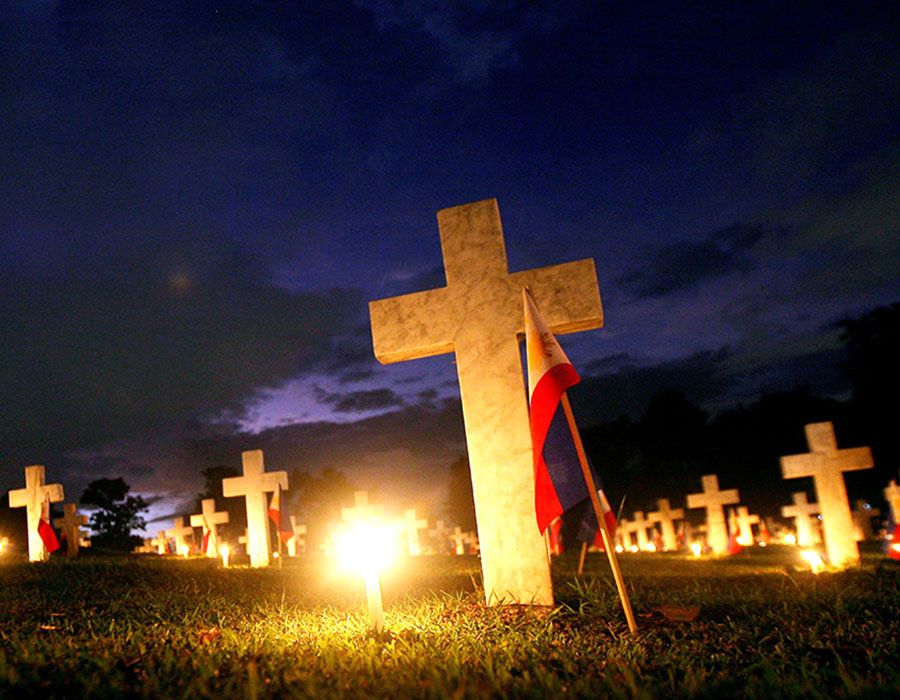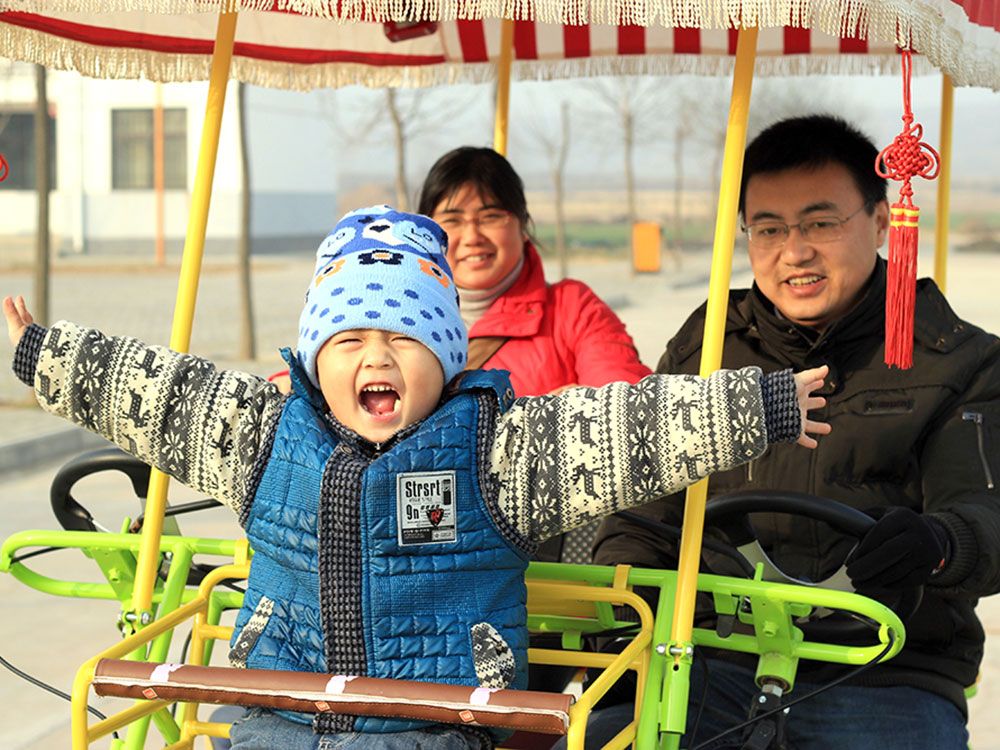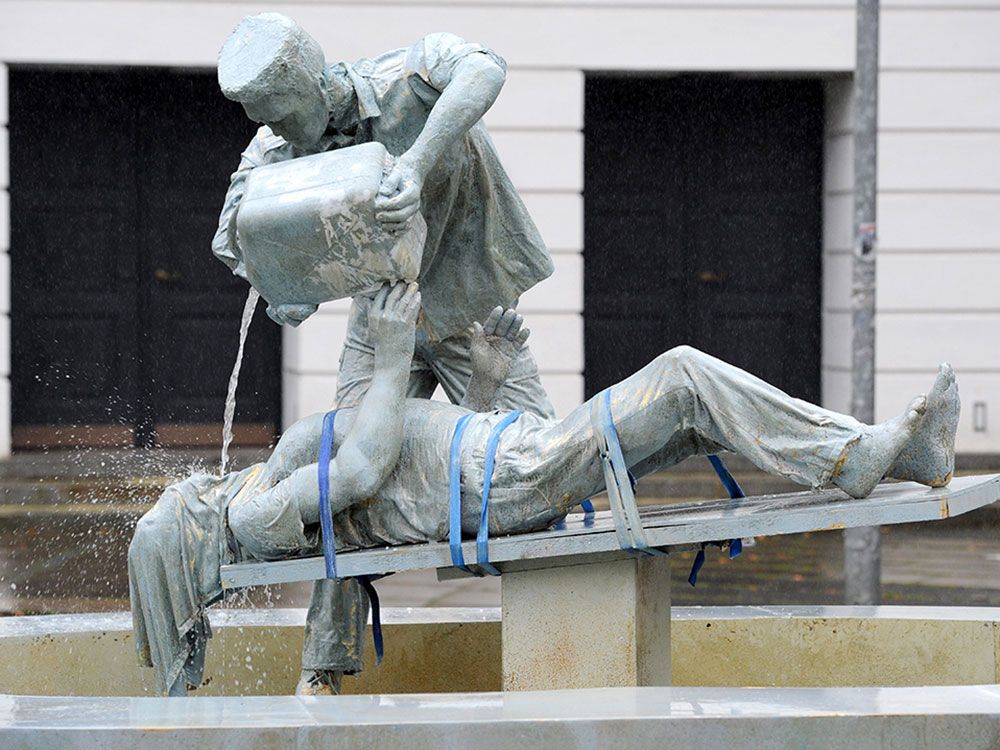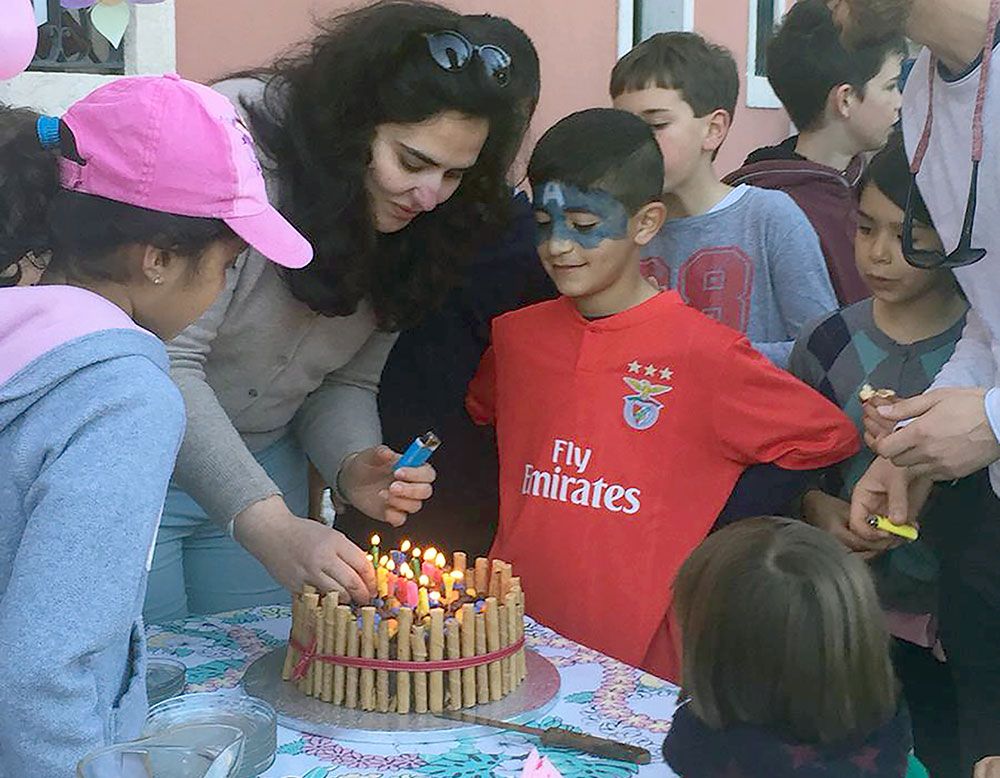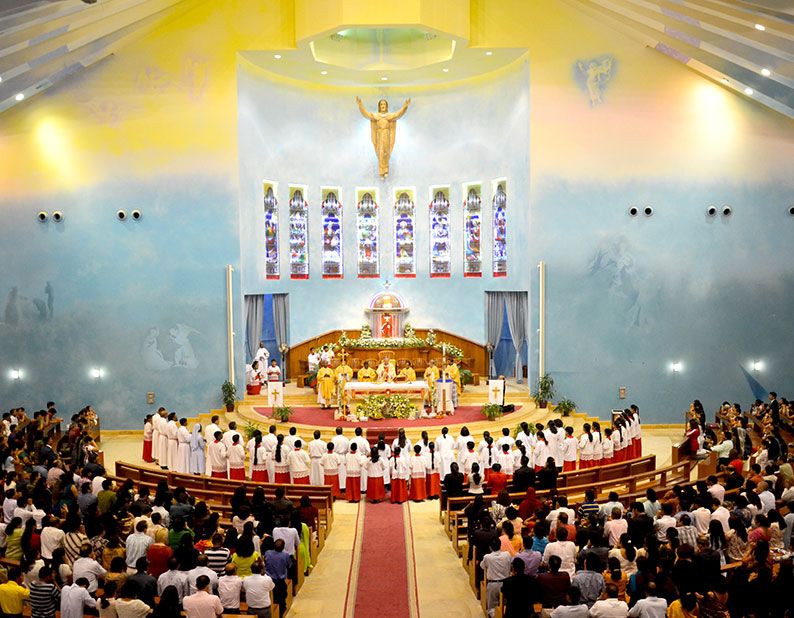I remember being profoundly disturbed by Fr. Eddie T. Panlilio’s announcement of his candidacy for the governorship of Pampanga in the election of 2007. I had known this soft-spoken man as the parish priest of my hometown, and as the founding director of the Archdiocese of Pampanga’s Social Action Center (SACOP). He is not a politician. A priest is the last person I would push into the public square.
But I must concede that drafting a priest to challenge deeply entrenched traditional politicians was a brilliant political move. “Among Ed,” as he is fondly called, was the perfect alternative gubernatorial candidate in a province that had seen the excesses of corruption in public office and the immense clout of organized gambling in the political system. The reasons that made him an attractive political option, however, were the same ones that provoked my misgivings about the wisdom of this move.
The principal drawback was his being a priest – a moral agent of established religion who was seeking to take on the functions of a political subject in the secular world of politics. What is at stake here is something that is central to what the philosopher Richard Rorty regarded as the goal of a liberal culture – that human beings be freed from their unexamined dependence on traditional figures of authority and strength, so that they may begin to chart their own lives.
Rorty was not opposed to people having religious beliefs. Indeed he saw this as a right that is as important as the right “to write poems or paint pictures that nobody else can make any sense out of.” But he was very emphatic that, in a “democratic and pluralist society, our religion is our own business – something we need not even discuss with others, much less try to justify to them, unless we feel like doing so. Such a society tries to leave as much free space as possible for individuals to develop their own sense of who they are and what their lives are for, asking only that they obey Mill’s precept and extend to others the tolerance they themselves enjoy” (Philosophy as Cultural Politics, p. 25).
To avoid partisan roles
I believe that Rorty’s insistence on keeping religion out of the public square was very much shaped by his horror over the fanatical violence that Islamic fundamentalism has unleashed over the years, as well as by the equally ferocious fanaticism of the Christian fundamentalists who once surrounded US President George W. Bush. But its philosophical value goes beyond the concern about rekindling religious wars. Rorty was aware that one cannot presume that there is a single universally valid way of resolving the issues thrown up by religion’s presence in the public square. “Issues like these,” he said, “require different resolutions in different countries and different centuries. It would be absurd to suggest that there are universally valid norms that might be invoked to settle them. But I would urge that debate over such concrete political questions is more useful for human happiness than debate over the existence of God” (p.26).
It is in the spirit of this continuing debate that I examine the concrete events set in motion by the entry into the political arena of a priest like the Rev. Eddie Panlilio. Let us leave aside the question of the purity of motives of the man. The more important question is the impact of this development on the formation of a mature and democratic Filipino polity.
Is there really a danger in mixing the roles of moral shepherd and political leader? The modern world thinks so. Except in Islamic states, where the propagation of religion is still regarded as an obligation of the state, the widespread view is that the political and the religious should be kept separate. While the precise meaning of this doctrine still confuses a lot of people, I think the general idea is that, in the age of religious pluralism, it is prudent for the state not to favor any particular religion and vice-versa; that the clergy should avoid taking on partisan roles in a society’s political system. This modern view is well articulated by leaders of the Catholic Church.
The opening address of Pope Benedict XVI at the 5th General Conference of the Latin American Bishops in 2007 eloquently sums it up: “The political task is not the immediate competence of the Church. Respect for healthy secularity, including the pluralism of political opinions, is essential in the authentic Christian tradition. If the Church were to start transforming herself into a directly political subject, she would do less, not more, for the poor and for justice because she would lose her independence and her moral authority, identifying herself with a single political path and with debatable partisan positions….To form consciences, to be the advocate of justice and truth, to educate in individual and political virtues: that is the fundamental vocation of the Church in this area.”
Forming consciences
The Church’s role in teaching political virtues is an important one that cannot and must not be given up. But in the performance of this role, the Church works through the consciences of individuals. It does not itself become a “political subject” directly acting in the political terrain, and taking up positions in partisan conflicts. It forms consciences, but it does not substitute itself for the individual consciences of the members of its flock.
The Church may indeed pronounce itself on the moral dimensions of public issues that are relevant to its institutional role in society. That is a vital function that is not in question. It may express its dismay over the corruption of values, and urge a return to the moral markers of society. In so doing, however, there is a danger that it may sometimes unwittingly take political positions and prescribe courses of action on issues in which it has no immediate competence. We know how thin this dividing line is. The problem is compounded when priests decide to run for public office.
In the modern world, the political system establishes its own priorities according to a specific normative code appropriate to politics. The issue that confronted Governor Panlilio after his election was how to define the parameters of his secular position as governor independently of the specific priorities of the Catholic Church. Ideally, having taken a leave from his priestly duties, he should not even think of the imperatives of his priestly ministry. But the fact that he seemed determined to return to the priesthood after serving out his term as governor might not have given him this choice. From the start, it seemed inevitable that he would find himself mired in one role conflict after another.
A feudal political system
But the other equally important consideration has to do with the building of a stable constituency for reform. The campaign to get Fr. Panlilio elected as governor relied heavily on the strength of the relationships he had built over the years as a pastor of the Catholic Church. If it was his wish to lead a sustainable reform process, there would have been no choice but to form a much broader political constituency. In organizing such a constituency, it was necessary for him to go beyond the ranks of the Couples for Christ ministry that formed the core of his campaign. But doing so, however, would have meant being engaged in the bruising practical chores of partisan organizing.
It would be naïve to think that a former social activist like Rev. Panlilio was unaware of the dangers and pitfalls of the direct political role he had taken up. But I am not certain if he was fully sensitized to the political demands of the reform project he espoused as an alternative politician. He ran without a party and without a slate, a lone ranger taking on the whole bad world of traditional politics by himself. He won by a very slim margin of 1,147 votes, garnering roughly just one-third of the total votes cast. The core of his support was basically the middle class. It is safe to assume that the rest of Pampanga’s population – the two-thirds that did not vote for him – remained trapped in the game of patronage politics.
It is important to bear in mind that we are dealing here with a feudal political system built over the years on the back of economic and political inequality. Filipino voters, like most of those who voted for Panlilio’s opponents, Lilia Pineda and Mark Lapid, cannot be expected to be transformed into autonomous political subjects overnight. Gov. Panlilio needed to win them over if he wanted to succeed – not by patronage, not by promises of grace or threats of eternal damnation, but by the resolute practice of good governance.
The culture of dependence
But here lies the dilemma. Filipino politicians are most aware that, in our politically immature and unequal society, good governance is not always the best route to winning an election. Yet, if Governor Panlilio’s goal was to leave an enduring legacy of governmental reform, he had no choice but to ensure the continuity of his reform agenda by politically paving the way for the emergence of new leaders and new political parties. This requires not only governance skills but, more importantly, sustained political organization and consolidation. Unfortunately, he did not pay much attention to the latter. Taking on a morally righteous stance, he succeeded in alienating most of his own original allies in the campaign for new politics. As the results of the 2010 elections show, without a solid reform core, Pampanga could easily slide back to the old ways of patronage politics and corruption.
Many of Among Ed’s admirers might have cast him in the role of a messiah who has come to redeem Pampanga’s politics. Such a conception of leadership only serves to perpetuate the culture of dependence. Over the years, we have seen how our leaders have proved inadequate to the enormity of the problems we face as a nation. In a strange way, the graver our problems become, the more we turn to those leaders we believe to be possessed of magical and extraordinary qualities. The more fragmented we are as a nation, the more frantically we search for strong leaders who can show us the way to salvation.
Without realizing it, we have been searching for political messiahs, individuals who can lead and inspire us to become what we imagine ourselves to be, instead of patiently organizing ourselves for long-term political battles. We have always felt we deserve better leaders, and so maybe we tend to measure the ones we have against objectively unattainable ideals. The result has been an unrelieved frustration that, with every election year, only heightens our political despair.
Stripped of all self-confidence
In all this, it may be that we are re-enacting the childlike quest for a healing God who can wipe out all our doubts, illnesses, and our sins with a single touch, and replace these instantly with a life of joy and peace. Such a quest is very strong in our Christian tradition, revisiting us regularly, especially at Lent, almost like a positive neurosis. One wishes that someone who understands how Jesus of Nazareth began attracting crowds by his healing powers could draw from this understanding a theology of self-liberation by means of faith. It could help us greatly in our search for a redemptive politics for our time.
It is amazing how the absence of trust in a community weakens its members and reduces them to a point where they are stripped of all self-confidence. Such collective demoralization is the single most important malaise gripping our country today. Our people’s quest for an inspiring leader who can break this demoralization is nothing less than a search for a messiah. We often seem as if we are constantly waiting for miracles when, in fact, we are really just looking for someone who could heal the cynicism and distrust in our hearts.
In the light of the fascinating concept of kenosis (self-emptying), I can now see how Jesus Christ came not so much to save man as to teach him how to live, how to have faith in one another, and how to take responsibility for himself and his fellow human beings. Kenosis led the agnostic Richard Rorty to come to terms with the profound Catholicism of his good friend, the Italian philosopher Gianni Vattimo. This wonderful exchange between Rorty and Vattimo, documented in a recently published book titled “The Future of Religion,” has made it easy for me to appreciate the role of religion in a secular world. Let me quote from Rorty’s personal summation of that debate:
“My differences with Vattimo come down to his ability to regard a past event as holy and my sense that holiness resides only in an ideal future. Vattimo thinks of God’s decision to switch from being our master to being our friend as the decisive event upon which our present efforts are dependent. His sense of the holy is bound up with recollection of that event and of the person who embodied it. My sense of the holy, insofar as I have one, is bound up with the hope that someday, any millennium now, my remote descendants will live in a global civilization in which love is pretty much the only law. In such a society, communication would be domination-free, class and caste would be unknown, hierarchy would be a matter of temporary pragmatic convenience, and power would be entirely at the disposal of the free agreement of a literate and well-educated electorate” (The Future of Religion, p. 39-40).




